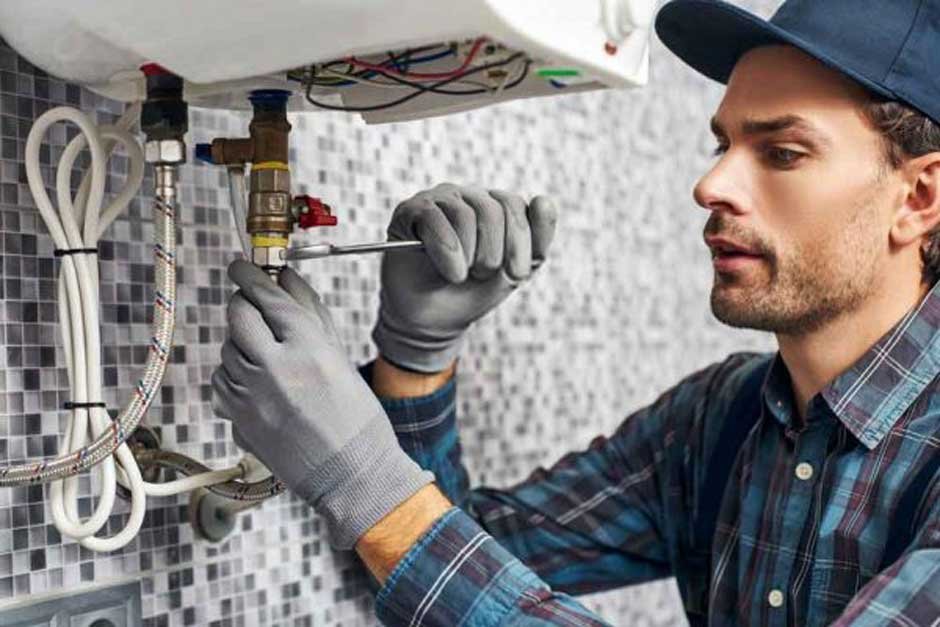A well-functioning heater is essential for keeping your home comfortable and safe during colder months. However, heaters can experience wear and tear over time, which can lead to various issues. Being able to recognize the early warning signs of heater problems can help you address them before they become more serious.
Common signs that indicate your heater may need repair include:
- Unusual Noises: Banging, squealing, or grinding sounds can indicate mechanical issues or loose components inside the heater.
- Inconsistent Heating: If certain rooms are colder than others or the heater struggles to maintain a consistent temperature, it may signal airflow issues or a malfunctioning thermostat.
- High Energy Bills: An unexpected increase in energy costs without a change in usage may point to reduced efficiency due to a system problem.
- Frequent Cycling: If your heater frequently turns on and off, this “short cycling” may be caused by an overheated system or thermostat issues.
- Unusual Smells: A burning smell could mean dust buildup, while a persistent gas smell may indicate a leak, requiring immediate attention.
If you notice any of these symptoms, it’s essential to investigate the problem or call a professional for an inspection.
Contents
Troubleshooting Common Heater Issues
Some heater issues can be addressed with basic troubleshooting steps. Here are a few common problems and simple fixes:
- Check the Thermostat: Ensure the thermostat is set to “heat” and at the desired temperature. Replace the batteries if needed, and make sure the settings haven’t accidentally been changed.
- Inspect the Air Filter: A clogged air filter restricts airflow, causing the heater to work harder and less efficiently. Replace or clean the filter monthly, especially during peak usage seasons.
- Clear Vents and Registers: Blocked vents reduce airflow and can cause inconsistent heating. Ensure all vents are open and unobstructed by furniture or other items.
- Check the Circuit Breaker: If the heater isn’t turning on, check the circuit breaker to ensure it hasn’t tripped. Resetting the breaker may restore power to the unit.
- Inspect the Pilot Light or Ignition System: For gas heaters, check the pilot light. If it’s out, try relighting it following the manufacturer’s instructions. If it won’t stay lit, there may be an issue with the thermocouple or gas valve.
If these steps don’t resolve the issue, it’s time to consider a professional repair.
When to Call a Professional for Heater Repair
While some heater issues are easy to address on your own, others require the expertise of a licensed HVAC technician. Here are some situations where professional assistance is essential:
- Persistent Heating Issues: If your heater continues to struggle with maintaining temperature or providing consistent warmth, a technician can diagnose and repair underlying issues.
- Strange or Persistent Noises: Mechanical problems inside the heater can worsen if left unaddressed. A professional can inspect and secure any loose components or replace failing parts.
- Gas Smells: A gas smell is a serious safety concern and requires immediate attention. Turn off the heater, evacuate the area, and contact a professional or your gas provider right away.
- Electrical Issues: If your heater trips the breaker frequently or you notice flickering lights when it’s running, an electrician or HVAC technician should inspect the wiring for safety.
- Frequent Cycling: Short cycling puts extra strain on your heater, reducing its lifespan. A technician can help identify if it’s due to thermostat issues, airflow restrictions, or a malfunctioning heat exchanger.
Hiring a professional ensures that repairs are done safely and effectively, restoring your heater’s performance and extending its life.
Tips to Prevent Heater Repairs
Regular maintenance is the best way to minimize the need for repairs and keep your heater running efficiently. Here are some preventive tips to help you avoid breakdowns and costly repairs:
- Replace Air Filters Regularly: Clogged filters make your heater work harder, which can lead to overheating and breakdowns. Changing the filter every 1-3 months is a simple way to prevent issues.
- Keep the Area Around the Heater Clear: Ensure the space around your heater is free from dust, debris, and obstructions to maintain good airflow and reduce fire risks.
- Schedule Annual Maintenance: Having a professional tune-up once a year allows a technician to inspect and clean critical components, identify potential issues early, and ensure the system is operating safely.
- Check the Thermostat: Regularly test the thermostat settings to make sure they’re accurate and responsive. Upgrading to a programmable thermostat can also improve efficiency.
Following these maintenance tips can reduce wear and tear on your heater, improve efficiency, and extend its lifespan.
Understanding common heater issues, troubleshooting steps, and when to seek professional help can save you time and money on repairs. Regular maintenance and prompt attention to warning signs will keep your heater running smoothly and efficiently, providing reliable warmth for your home. For any complex repairs or annual tune-ups, consult with a licensed HVAC technician to ensure your heater stays in top condition.








